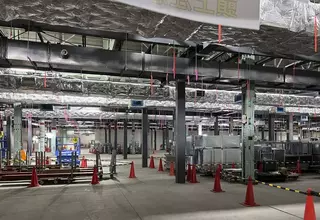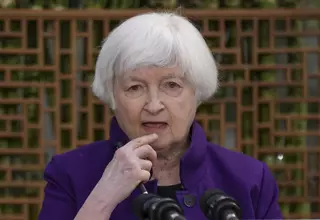Do You Know Who Made It? Young Asians Campaign to Stop Slavery

Bangkok. Young campaigners in Asia are taking to social media to urge their peers to think twice about purchasing products from T-shirts to phones, as part of a campaign to end modern slavery.
About 40 million people are trapped in slavery around the globe, and forced labor is most prevalent in Asia, according to the International Labour Organization (ILO) and the charity Walk Free Foundation.
A rise in spending power in Asia has also driven up the demand for cheap labor in factories making products that range from garments in Bangladesh to shoes in Cambodia and Vietnam.
Young consumers are now being urged to pressure manufacturers to end the exploitation of workers under a campaign called "Do you know who made it?", which was launched on Tuesday (27/03) in Bangkok by IOM X.
The group is backed by the International Organization for Migration and the United States Agency for International Development.
"We need to ask ourselves: is this product important to us and can we shop better?" said Kamonnart Ongwandee, a 26-year-old Thai designer who promotes ethical fashion on her blog.
"Behind the fashion you see on all the glossy magazine covers, there are stories of someone being exploited."
Surabot Leekpai made a video showing how a T-shirt with the slogan "Happy" was made under sweatshop conditions, which he shared with the nearly 5 million followers of his YouTube channel.
"Before all these products get into our hands, there are so many stories behind them," said the 30-year-old Thai YouTube star, better known as Pleum, at the campaign launch.
Illegal profits from forced labor in Asia, including those from the manufacturing sector, total an estimated $52 billion per year, according to ILO figures.
People employed in manufacturing often work excessive hours, are underpaid, live in substandard housing and have their documents withheld to prevent them from leaving their jobs, according to IOM X.
Debt bondage is also common, where migrant workers pay hundreds of dollars to secure a job but are not allowed to leave the workplace when they suffer abuse, it said.
"It often leaves them not better off than where they started," said IOM X program leader Tara Dermott.
Reuters
Tags: Keywords:POPULAR READS
Nissan to Make Next-Generation EV Batteries by Early 2029
Solid-state batteries are widely seen as the next step for EVs.Airlangga Set to Extend Leadership in Golkar After Election Success
Under his leadership, Golkar rose to the second position in the legislative polls and successfully made Gibran the elected vice president.Yellen Says Iran's Actions Could Cause Global 'Economic Spillovers'
Iran's missile attack on Israel early Sunday came in response to what it says was an Israeli strike on Iran's consulate in Syria.Takeaways from Prabowo's Responses to Legal Motion Contesting His Election Win
Part of the argument addresses the claim that the candidacy of Gibran Rakabuming Raka, Prabowo’s running mate, is unlawful.Prabowo Camp Cites ‘Procedural Error’ in Legal Challenge by Rival Candidates
The Constitutional Court's main task is to address alleged discrepancies in vote tallies, which neither of the plaintiffs challenged.Popular Tag
Most Popular






















